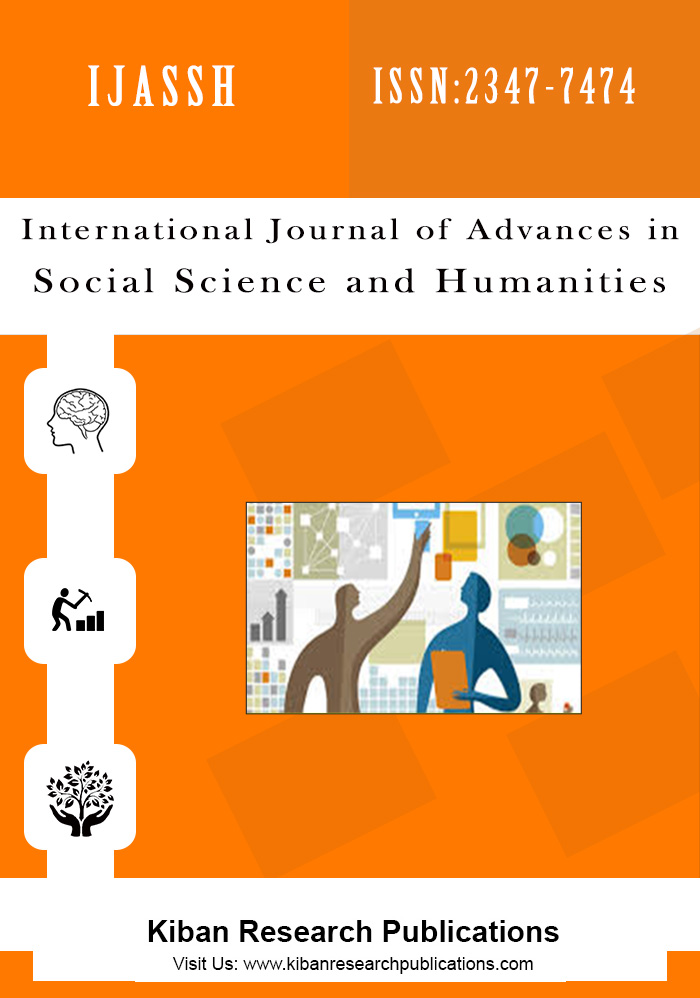Using Sketch Engine to Investigate Synonymous Verbs complete and finish in English
Abstract
Objective: Synonymy is an important yet intricate linguistic feature in the field of lexical semantics.
Method: Using the 100 million-word British National Corpus (BNC) as data and the software Sketch Engine (SkE) as analyzing tool, this study examines the usage differences between complete and finish, two synonymous verbs that are often misused for their complex semantic and syntactic usage patterns. In addition to examining the collocates of the verbs, the study also investigated the syntactic patterns that the verbs typically occupy in the sentence structure and their functional implications.
Result: The data analysis yields an informative description of the internal semantic structure of the synonym set. The results also show the need for the corpus approach to go beyond collocational analysis in the study of synonymous verbs. The limitations of using Sketch Engine to extract and disambiguate synonyms are also addressed.
Conclusion: This paper ends by discussing the pedagogical implications that this research may have when the results are introduced into the classroom teaching.
Keywords: synonymy; semantic and syntactic usage patterns; collocational analysis
References
Aston, G., & Burnard, L. (1998). The BNC Handbook: Exploring the British National Corpus with SARA. Edinburgh University Press.
Atkins, B., & Levin, B. (1995). Building on a corpus: A linguistic and lexicographical look at some near-synonyms. International Journal of Lexicography, 8(2), 85-114. http://dx.doi.org/10.1093/ijl/8.2.855
Biber, D., Conrad, S., & Reppen, R. (1998). Corpus Linguistics: Investigating Language Structure and Use. Cambridge, UK: Cambridge University Press. http://dx.doi.org/10.1017/CBO9780511804489
Chunyu, H. & Bei, Y. (2015). Using Sketch Engine to Investigate Synonymous Verbs. International Journal of English Linguistics, 5(2), 29-41. http://dx.doi.org/10.5539/ijel.v5n4p29
Church, K. W., Gale, W., Hanks, P., & Hindle, D. (1991). Using statistics in lexical analysis. In U. Zernik (Ed.), Lexical Acquisition: Exploiting On-line Resources to Build a Lexicon (pp. 115-164). Hillsdale, NJ: Lawrence Erlbaum.
Divjak, D., & Gries, S. Th. (2006). Ways of trying in Russian: Clustering behavioral profiles. Journal of Corpus Linguistics and Linguistic Theory, 2(1), 23-60. http://dx.doi.org/10.1515/cllt.2006.002
Firth, J. R. (1957). A synopsis of linguistic theory 1930–1955. In Philological Society (Eds.), Studies in Linguistic Analysis (pp. 1-32). Oxford, UK: Blackwell.
Geeraerts, D., Grondelaers, S., & Speelman, D. (1999). Convergentie en Divergentie in de Nederlandse Woordenschat. Amsterdam, Netherlands: Meertens Instituut.
Gilquin, G. (2003). Causative ‘get’ and ‘have’: So close, so different. Journal of English Linguistics, 31(2), 125-148. http://dx.doi.org/10.1177/0075424203031002002
Glynn, D. (2007). Mapping meaning. Towards a usage-based methodology in Cognitive Semantics. (Unpublished doctoral dissertation). University of Leuven, Leuven, Belgium.
Gries, S. Th. (2001). A corpus-linguistic analysis of -ic and -ical adjectives. ICAME Journal, 25, 65-108.
Gries, S. Th., & Otani, N. (2010). Behavioral profiles: A corpus-based perspective on synonymy and antonymy. ICAME Journal, 34, 121-150.
Hanks, P. (1996). Contextual dependency and lexical sets. International Journal of Corpus Linguistics, 1(1), 75-98. http://dx.doi.org/10.1075/ijcl.1.1.06han
Kilgarriff, A., Baisa, V., BuÅ¡ta, J., JakubÃÄek, M., Kovář, V., Michelfeit, J., Rychlý, P., & Suchomel, V. (2014). The Sketch Engine: Ten years on. Lexicography, 1(1), 7-36. http://dx.doi.org/10.1007/s40607-014-0009-9
Liu, D. (2010). Is it a chief, main, major, primary, or principal concern? A corpus-based behavioral profile study of the near-synonyms. International Journal of Corpus Linguistics, 15(1), 56-87. http://dx.doi.org/10.1075/ijcl.15.1.03liu
Liu, D., & Espino, M. (2012). Actually, Genuinely, Really, and Truly: A corpus-based Behavioral Profile study of near-synonymous adverbs. International Journal of Corpus Linguistics, 17(2), 198-228. http://dx.doi.org/10.1075/ijcl.17.2.03liu
Partington, A. (1998). Patterns and Meanings: Using Corpora for English Language Research and Teaching. Amsterdam, Netherlands: John Benjamins. http://dx.doi.org/10.1075/scl.2
Sinclair, J. (1991). Corpus, Concordance, Collocation. Oxford University Press.
Sinclair, J. (1992). The automatic analysis of corpora. In J. Svartvik (Ed.), Directions in Corpus Linguistics: Proceedings of the Nobel Symposium 82, Stockholm, 4–8 August 1991 (pp. 379-397). Berlin and New York: Mouton de Gruyter. http://dx.doi.org/10.1515/9783110867275.379
Sinclair, J. (2004a). Trust the Text: Language, Corpus and Discourse. London: Routledge.
Sinclair, J. (2004b). Intuition and annotation: the discussion continues. In K. Aijmer & Altenberg (Eds.), Advances in Corpus Linguistics (pp. 39-60). Amsterdam: Rodopi.
Sinclair, J., Jones, S., Daley, R., & Krishnamurthy, R. (2004). English Collocational Studies: The OSTI Report. London: Continuum.
Stubbs, M. (1996). Text and Corpus Analysis: Computer Assisted Studies of Language and Culture. Oxford: Blackwell.
Stubbs, M. (2001). Words and Phrases: Corpus Studies of Lexical Semantics. Oxford: Blackwell.
Xiao, R., & McEnery, T. (2006). Collocation, semantic prosody, and near synonymy: A cross-linguistic perspective. Applied Linguistics, 27(1), 103-129. http://dx.doi.org/10.1093/applin/ami045
Yves Peirsman, Y., Geeraerts, D., & Speelman, D. (2015). The corpus-based identification of cross-lectal synonyms in pluricentric languages. International Journal of Corpus Linguistics, 20(1), 54-80. http://dx.doi.org/10.1075/ijcl.20.1.03pei




